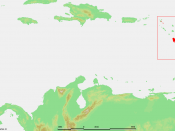Colonialism and its impacts on the political, economy, and social lives are of great thematic importance for Jamaica Kincaid. Many of her works - fiction as well as non-fiction - deal with the aftermath of colonialism. She uses literature mainly as a means of unveiling deeply hidden truths about the impact of colonialism in Caribbean islands. If in 'A Small Place' she had adopted a rather acidic tone in her criticism of the colonial rule in Antigua, in 'The Autobiography of My Mother', her castigation of the colonisers is disguised through the character of Xuela. In 'The Autobiography of My Mother', Xuela becomes the medium though which Jamaica Kincaid gives an account of the effects of colonisation. In other words, she replies back to Gayatri Spivak's question 'Can the subaltern speak?' She gives voice to the Black female Caribbean. Xuela herself points out that:
"I am not a people, I am not a nation...
I only wish from time to time to make my action be the action of the nation..."
As an anti-colonialist text, 'The Autobiography of My Mother' provides textual space to the silenced and the oppressed Caribbean people of colonial days or of present time. Kincaid is writing history, a history which is not Eurocentric in nature since the Caribbean people are able to voice out their suffering, their poor condition of living and their worries within the text. Their suffering is the outcome of colonisation since the Europeans have taken away all the riches which the Caribbean islands offered. For Kincaid, "history was not a large stage filled with commemoration, bands, cheers, ribbons, medals, the sound of fine glass clinking, (...) in other words, the sounds of victory. (For her) history was not only the past: it was the past and it...


